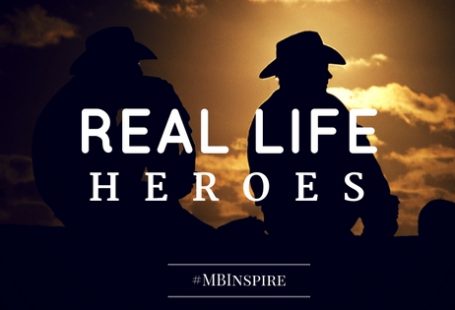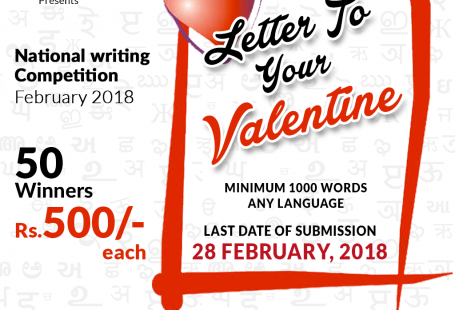Born in 19th August 1966, Raeesh Maniar did his Masters in Pediatrics. For about twenty long years he practiced as a Pediatrician and Developmental and Behavioral child specialist. He is a native of Killa Pardi, Valsad, however he has settled in Surat since decades, so in his own words a pakka “Hurti”. At quite an early age he developed a very strong affinity toward poetry which was later on to become his lifelong love and addiction. Eventually, he left practicing as a doctor and plunged whole heartedly into creating “Ghazals,” a very subtle art of poetry. He would not like it to term it as a profession though, still he feels very much bonded with it. Presently he devotes his full time to writing and occasionally appears at ‘Child Care’ and ‘Children Education’ Workshops and seminars giving informative lectures.
Inspiration of becoming a writer:
He states that he has never taken decisions in his life after prolonged thinking and as for becoming a Poet or an author seems bit of a heavy title. His journey of writing started during his adolescence, when the body and mind go through many complex changes, some of which are difficult to deal with. Those were the days when he felt boredom, faced bullying and other harassment from other kids who were more confident in social matters than him. To survive, and combat the situation he says, he found solace and peace of mind in poetry. He thought that happiness in his life comes from the poetry.
The sheer joy of creation mystified him. To explain this he gives an example of a carpenter. The way a carpenter with his tool polishes his wood again and again till it becomes shining and smooth and gets that smile on his face looking at his efforts with satisfaction and saying to himself, ‘wow! How good it looks!’ similarly Raeesh Maniar likes to put imaginations, a tale or a thought into words. He considers poetry a kind of power, a tranquilizer in which one can get lost in his own world; one can forget the drudgery of life.
For him writing is an activity to understand his own mind and the world. For him to be thinking clearly, whatever he is thinking about, it seems essential for him to express it as clearly. He believes that the fact that someone is going to read it or listens to, makes him constantly aware and that brings coherence in his thoughts and speech. And that precisely brings out in him constant desire to create poetry and other forms of literature. He admits frankly that reading good quality authors would invite a complex in him that when would he be able to write at par with them, however reading run of the mill authors he gets motivation that at least he would not be able to perform worse than them.
Interesting fact about him:
He got his first award in 1983 for writing Gazals-Shayari in writing competition. He admits quite frankly that he is a forced Speaker and not a Natural. He recalls a funny situation which occurred during his college days, once Mensoli Kapadiya and Swati Pandya were called for singing in an annual college event. As they started singing the collegians started banging, and to save them further harassment as a Good Samaritan he had to take microphone in his hands. That was his first experience at anchoring. Eventually this became a usual practice and that is how he got rid of his initial stage fear. And this is very interesting, he recalls that he translated works of four masters in the field; two of them were Javed Akhtar and Gulzar. Both of them at different interval of time applauded his effort by saying that as if he has authored these poems in the Gujarati and they have translated them into Urdu. What a commendation from legendary poets who are internationally acclaimed!
He has entered in the world of both Bollywood and Gollywood (Gujarati films). He has written songs for ten films including “Kevi Rite Jaish” a new genre Gujarati super hit film. In Sanjay Leela Bhansali’s film titled “Ramleela” his song lines appear. He considers it as a small achievement or beginning, and reflects philosophically whether it is going to be the highest achievement so far or it is just the beginning, only time will tell.
Raeesh Maniar is very fond of reading, and travel. He likes cooking also. Sports are also his hobby. He likes to talk to common people. When he was young, he used talk to elders like a friend and now he likes to talk with children. With rationalists or believers he can mix with them all. In a notion that he knows everything and to prove that right he states that gradually he learnt a lot. In last ten years his anger has come down to a lesser degree and he considers it as a great improvement for him, even better than an award. Whenever he feels very agitated, he tries to forget that he is “Raeesh Maniar” and that helps. He reveals, as a soul searching exercise that form of ego could be the real cause of all this agitation and frustration.
His most appealing virtue is his straightforwardness. He does not believe in beating around the bush and says what he feels at heart not caring how people would react at the same time he is humble enough. He has thorough grasp and deep understanding of what he is doing and the world around him. Acceptance and persistence are his outstanding qualities. There is much lying underneath his unfathomable heart and it has to erupt like a volcano, but only he can do it, till then the world has to wait.
First Story and his Passion for Gazals:
He wrote his first book “Kafianagar” at the age of 22 mainly comprising ‘Gazals.’ He admits honestly that he only knew that and only that was affordable for publishing in those years as a medical student. He adds further that in whatever form he chooses to write he would always be a “Gazalkaar.” It is like breathing to him, giving an example of a mother who may be a little far away from her child but she always has the presence of her child in her mind. Similarly, Gazals continuously run in his mind even in his subconscious. Gazal is very personal thing to him. He has been expressed by it more fully; it is not a tool for attaining fame or a social status.It is a totally absorbing devotion for him. What he wants to gain by it he does not know. He recalls seriously that at the age of eleven or twelve there persisted unknown sorrow in his heart and that ‘Gazal’ pulled out him from it.
There was inherent lack of ability in him to face life situations which are very hard at times, Gazals provided him that ability to combat, he admits quite frankly. It helped him in different ways at different times; it is a kind of poetry, comparing with a vessel, he says that as it can carry different kinds of liquids, Gazals too are like that, it can carry different moods, like sorrow romance or even spirituality according to your need. It could become a medium of expression for entertainment or for constructive thought processes depending on the varied phases of life. He explains that right from the beginning when feelings arise in your heart till it becomes wisdom, which moments it captures in the entire process is very important. So in that sense
Gazal is like a kaleidoscope, in the kaleidoscope when certain designs or images are formed they can be or cannot be formed again.
Giving his own example he says that Gazal helped him when he was about thirteen or fourteen years old and now even at forty-nine still it helps. Earlier it used to be for criticism and now it is an art for creativity. Just like every year in Spring Season trees take new looks, Gazal is always transforming in new ideas and new wisdom showing different shades of life. Not repetitive, he asserts. Here is a poet who has understood the real underlying essence and intricacies of poetry. Poetry for him is a soul searching endeavor.
Contents Published and Appreciated:
Till date he has published 18 books in Gujarati language. He prefers himself to be known as multicolored rather than multifaceted. He prefers to write poetries, from his point of view. But if he has to write from different points of views he would write drama/plays and stories. But as a last resort when he finds it difficult to understand life he would opt for making others laugh. He has published one book titled ‘Likhitang Lavanya’ in Matrubharti. He has also published some articles in E-shabad and in Facebook. Mainly his love is for poetry, but indulges himself in writing novels, plays, humor and even thought provoking articles also.
He remembers fondly that in his younger years he published some of his work/poetry by a ghost name (girl’s name). He found it very difficult to publish his works by his own name, he laments that Gujarati Publisher are quite too soft for women writers in this regard.
Presently, he does not send his poetic works for publication, if someone asks for, it is well and good. He is quite satisfied in publishing them on the “Net world” or say e-world. Talking about publication of books he says that the demand is for “self-help” books, whether they are going to really help the poor reader or not that is immaterial, but it certainly helps our Gujarati Publishers, that is for sure, he adds sarcastically at the ongoing scenario.
He worries about the fact that they’re very few writers who write creative literature, less are the ones who want to publish it and still lesser are the readers who are going to read them. He actually says that number of readers loving good quality creative literature is dwindling day by day. And for this situation in a subtle way he tells us all that we should punish ourselves because only we are responsible.
Establishing Ideas:
He strongly believes that no literature can be without a touch of life. Ultimately you are to create liveliness using imagination in any literary art form. Literatures are transformation of imagination into reality and vise a versa. Often literature based on a true story or incident is nothing but a ‘report,’ he says. He puts greater emphasis on an imagination which helps you to have a peep at the “truth of life.” “Is not this greater than the truth itself?” He wonders. He says, ‘Alas! If Ideas were to be obtained from somewhere! According to him Ideas suddenly appear in his mind like a spark. Some he lets go and on some he works. He lingers on to those ideas which can be shared and something creative can be done through it. Emotions give birth to ideas and the intellect refines it, but at the end it takes a beautiful and touching form of feelings within. In short, he affirms that it is the emotions which compel a writer to express it which in turn give rise to emotions in reader’s mind. So in a way it all starts with feelings and ends with feelings, he explains. However, during the entire process the intellect does play a part however small it could be.
Authors and Books he likes:
His favorite authors are ‘Anton Pavlovich Chekhov’ in story format, ‘Marij’ in poetries and ‘P.L Deshpandey’ in humor. His favorite books are ‘Jalebi Jevi Jindagi’, ‘Aapne balakone sha mate bhanviye chiye’ and ‘Shabd mara swabhavma j nathi.’
Support in his Journey of Writing:
He considers his readers, listeners and literary enthusiasts gave tremendous support all along his journey as a writer. Mukulbhai Choksi supported him wholeheartedly during his college years and established him as an author. He took him to many “Mushayaras,” where poems are recited. He admits honestly that in those years he was very sensitive and only this kind of support helped him to stay in this field otherwise he would have taken up some other activity. Ganibhai Dahiwaala and Manharlal Choksi also gave important support in those early years. He is indebted to them forever.
Appreciating Matrubharti:
After communication with Mr. Mahendra Sharma he came to know about Matrubharti. And then on he started publishing his eBooks in Matrubharti. With that he has got new readers.
He praises Matrubharti for being well organized and supportive and considers it visionary and well ahead of its time.
Opinions about LIFE:
He asks philosophically, “Can life ever be held by anyone?” He quite clearly says that his literature is reflecting his opinions or his understanding of “life.” He does not adhere to any fix ideology about life and believes that the more you define ideas and principles about life the more bound you will become. His philosophy of life is constantly absorbing new ideas, whatever he learns and understands has a tentative value. He is always ready to accept new line of thinking.
For Readers:
He humors that he is not willing to give any message to his reader, if he does they will stop reading him, it is not his job. However, he says that it’s more than enough for him if his literature lays a friendlier hand on the shoulders of his readers. But if he has to say something he advises to help propagate good literature and criticize the bad one and help promoting interest for reading. As an author he likes his readers to feel varied kinds of emotions in an interesting way, and to put it simply to let them pass their spare time. He explains this in simplest terms that every reader would like to get absorbed in any kind of literature according to his level of understanding of emotional make-up. Same way he too creates it according to his intellect and emotional level, he says. In this vast world having billions of people only few thousands read him at their leisure time so he also writes when he is free, he declares in a matter of fact way.
His views on literature:
He observes that in literature some classics are such that they are liked both by mass and class. Also, some are beyond the understanding of commoners (some even he cannot understand). Any product whether it is a drama/play, film or a book if it is trash generally people do not like it. And mediocre creation is appealing to larger section of people, it is a fact for every contemporary time, but it does not survive for long. Very little amount of class literature is written which is worthy of preserving for decades or centuries, this is usual trend, he surmises. This is the reality and he has no complains.
Being a writer (general aspects):
For him a writer should have at least four qualities in him
- Keen observation power
- Sympathy, love for humanity and unattached attitude
- Independence of mind that is not to be a salve of some ideology.
- To care about reader’s mind, his time and his heart.
Every writer faces two difficulties fear and rejection.
The moments are unnerving and uneasy before creating some work of literature. Lot of time and thinking is devoted for such works. There is always an apprehension, a kind of fear for not being able to transform an idea or an imagination into its final form. If the fear wins it is called the ‘writer’s block’ and if the fear loses creation happens, he explains. Adding further he says that after the creation the question of rejection comes up. After all the hard work you have put in, if your creation remains unpublished, the very aim is defeated and this experience is really heart breaking and tormenting, even insulting. Here he ventures out few tips for upcoming authors,
- Remember that rejection is of the work (created work) and not that of the creator.
- Rejection is done by a particular person and not by the entire world, and hence it is important to remember that often initially rejected works are acclaimed as master pieces later on.
- Be prepared to rewrite.
- The best response to insults or no acceptance is putting in more efforts for bringing out the best in you. There is no other way or short-cuts.
- Even if you know it is advisable to use colloquial language which is easily understood by people.
- For your creative writing spare that period time when you could be totally devoted. It is futile to remain always present on the social media.
- If you are being able to bring out good works, keep doing that at any cost, but if can’t then it is better to be a good reader or a critic.
He truly explains that history written by those contemporaries is a great treasure to us, because it represents the history which was really lived. It is also a very important part of present times which cannot be ignored or put aside. And in literature which is resilient and persistent now would also be, similarly a part of the future times. He strongly believes that words written with goodness and truthfulness at heart create its own world akin to what the god has created. The wonders of the world are creation of the ultimate creator (God) and creative art of the worldly artists is nothing but a return gift to that supreme creator who is up in the skies. For any honest writer his literature is an extension of his entity. His heartbeats and his breathings have its own existence, so is the longevity of his works, however small or lengthy it could be apart from its creator’s life span. Giving examples of Mira and Kabir he says that today they are not in flesh and blood but through their writings they existing. Not going too far in the history, he says that even today whenever people go to a library and bring out “Jog Sanjog” and “Ashaka Mondal” and go through its pages then writers like Harkisan Mehta and Ashwini Bhatt come to life on those pages.
So beyond the bodily existence a write has a chance to live through the ages and even become immortal in that sense!
Lastly he adds, that leaving aside such far fetched thinking even if a writer considers that he has been able to put his imaginations, his thoughts and ideas into something which could be shared to people is not a bit less achievement. One would certainly like to pat his own back for this kind of endeavor. It is the greatest satisfaction!
The other side of Raeesh Maniar:
During his college and school years he has enjoyed even undesirable events and circumstances. Not worth complaining, he says. Good teachers gave him knowledge and bad teachers gave him laughter. More or less he has been involved with only writing, he admits. But since he is very interested in children and their education he approached the Government of Gujarat and got started “Global Medium” on experimental basis. In this the idea is to teach in a Gujarati medium school the subjects of science and math in English language. So in this way Gujarati language can also sustain and the children could be well equipped for national and international exposure. He really feels that if this idea works and gets the momentum required it would be a great job accomplished in future.
Wherever he sees success now there were difficulties and challenges then, but presently he cannot even remember them. But today the most difficult job for him is the blank paper lying in front of him which he has to fill. Here is a writer who has no qualms about life with its hardships, disasters or problems. He would just sail along, finding solace in creating literature, giving voice to multitude of emotions for his heart and for the hearts of his readers.
If you want to understand him, read him. His literature is his mirror.There is nothing extraordinary about him that people should know he puts it modestly.
He recalls sarcastically that one interviewer filled pages and pages asking numbers of Gujarati authors that what perfume and what kind of soaps you use and silly things like that. He does not attend to such exercise in spite of number of requests showing his independent attitude. Not after fame and cheap publicity, he is down to earth honest individual, an author who understands his job well at the same time believes that a writer should have qualities of sympathy, humanity and devoid of possessive attitude.





